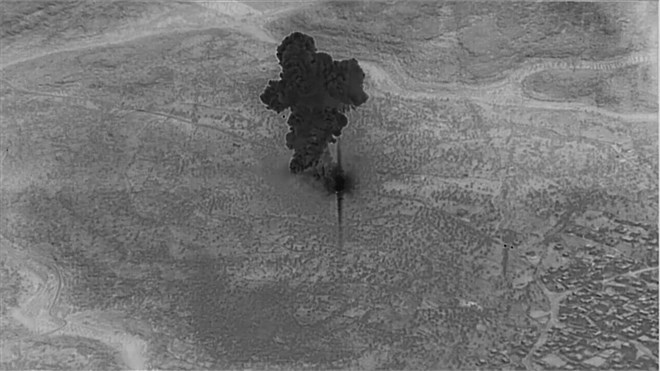
Friday November 1, 2019
BEIRUT — The Islamic State militant group Thursday announced the successor to its former leader, Abu Bakr al-Baghdadi, who U.S. officials said killed himself by detonating a suicide vest during a raid last week on his hiding place in northwest Syria.
A recording released by the Islamic State’s media arm confirmed Baghdadi’s death and named his successor as Abu Ibrahim al-Hashimi al-Qorashi.
“Do not rejoice, America, in killing Sheikh al-Baghdadi,” a spokesman said on the recording, which was disseminated on the group’s social media channel. “Do you not realize that the [Islamic] State stands today at the doorsteps of Europe and Central Africa? Nay; it is expanding and persisting.”
“Do you not see how you have become the laughingstock of the nations,” it said, addressing the United States, “your destiny ruled by an old fool who goes to sleep with one opinion and wakes with another?”
Baghdadi’s death was widely seen as a blow to the Islamic State, which swept across large areas of Iraq and Syria beginning in June 2014 and eventually took control of territory the size Britain. The group, also referred to as ISIS, terrorized towns it ruled into submission and carried out attacks overseas under the leadership of Baghdadi, an Iraqi national.
Counterterrorism experts said the new leader’s name was possibly a pseudonym, accorded to Baghdadi’s successor at the time of his succession.
With the appointment, the Islamic State appears to be again choosing a figurehead with the scholarly credentials and ancestral lineage that justifies a claim to the title “caliph.” The name “Hashimi” denotes a descendant of the Banu Hashim clan of the Quraysh tribe, to which the prophet Muhammad also belonged. The Islamic State’s official statement also refers to the man as a “scholar.”
Baghdadi, also a claimed descendant of the Banu Hashim clan, was regarded as an Islamic scholar, having studied Islamic jurisprudence at the University of Baghdad and served as an imam. Among the Islamic State’s hard-line adherents, those qualifications gave him standing to claim to be the true “caliph” who could lead the Islamic State’s self-
proclaimed caliphate.
“We see the group again emphasizing scholarly credentials,” said Cole Bunzel, a research fellow at the Hoover Institute. “It also invoked the example of the first generations of Muslims in describing the selection process for selecting a new caliph. In Sunni Islam, generally speaking, there are two recognized legitimate ways to appoint a new caliph: by designation by the current caliph, or by selection by a group of qualified men. The latter was the case here.”
Mainstream Sunni Muslim authorities have long rejected Baghdadi’s teachings as a perversion of Islam. The Islamic State’s announcement Thursday came amid reminders of the group’s irrelevance to many in the Middle East — at a moment when Arab countries, including Iraq and Lebanon, are gripped with popular, anti-government protests that also explicitly reject appeals to religious sectarianism, a hallmark of the Islamic State.
The Islamic State’s stunning rise began with a lightning advance across territory in northern and western Iraq as the country’s military forces retreated. A U.S.-led campaign to beat back the militants lasted years and relied on Iraqi soldiers and militiamen as well as a Kurdish-led force in Syria.
Towns and cities occupied by the Islamic State suffered twice: from the militants’ brutal rule, and from what human rights groups said was a frequently indiscriminate U.S.-led air campaign that killed thousands of civilians and reduced parts of Syrian and Iraqi cities to rubble.
Even after that campaign, the Islamic State has proved durable, carrying out attacks as Iraq and Syria — weakened by political turmoil or civil war — struggled to respond. Other factors have made the Islamic State’s resurgence more likely, experts said, including the harsh detention conditions of thousands of Sunni Muslims accused of membership in the group or collaborating with the militants.
In Thursday’s recording, the group said it would exact its retribution for the deaths of its members but did not specify how.